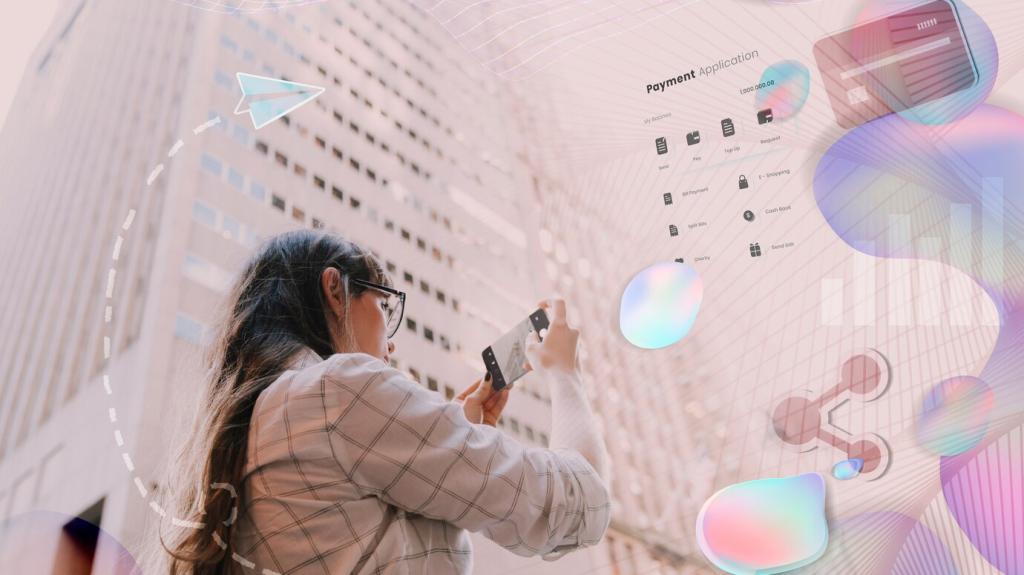Understanding AI's Role in Transforming Influencer Marketing
The integration of artificial intelligence (AI) in influencer marketing is rewriting the rulebook for brands, creators, and consumers alike. As digital landscapes become increasingly sophisticated, AI technologies are shaping every aspect of influencer campaigns—from audience analysis and campaign ideation to content optimization and measurement of results. This comprehensive guide explores how AI is fueling new possibilities and efficiencies in influencer marketing, and highlights what this transformation means for the future of the industry.
The Evolution of Influencer Marketing through AI
Enhanced Talent Discovery
AI streamlines the process of finding influencers who truly match a brand’s values, target demographics, and campaign objectives. By drawing on vast datasets, including public profiles, engagement statistics, and nuanced audience behaviors, AI-powered platforms can suggest collaborators that might otherwise go unnoticed. The technology considers intricacies such as followers’ interests, past collaborations, and real-time content trends, providing marketers with a shortlist of optimal candidates. As a result, brands can uncover niche influencers with engaged communities, facilitating more authentic and effective campaigns across both mainstream and emerging platforms.
Predictive Audience Analysis
Artificial intelligence brings predictive modeling capabilities to influencer marketing, allowing marketers to analyze potential reach and resonance before campaigns even begin. By leveraging historical data, sentiment analysis, and lookalike audience simulations, AI can forecast the likelihood of campaign success. These insights help brands make informed strategic decisions, allocate resources more efficiently, and minimize risks. The ability to anticipate audience reactions leads to hyper-targeted messaging that feels personal and relevant, paving the way for stronger brand-consumer relationships.
The Shift to Authenticity
AI is enabling a move from mass influencer outreach to authentic partnerships that prioritize genuine engagement over sheer follower count. Machine learning algorithms analyze comments, shares, and even the language of influencer-audience exchanges to assess credibility and alignment. This technological shift empowers brands to build campaigns rooted in real voices and stories, ensuring that influencer marketing stays effective in a landscape where authenticity is valued above all else.
Data-Driven Campaign Strategy Creation
Precision in Campaign Planning
AI tools distill massive amounts of data to surface actionable trends and forecast potential outcomes for influencer campaigns. By examining competitor activities, seasonal patterns, and evolving consumer behaviors, AI provides marketers with granular intelligence to fine-tune their approaches. This data-driven clarity enables brands to set realistic KPIs, choose optimal channels, and determine ideal publishing cadences. Such informed planning goes beyond guesswork, offering a reliable roadmap for campaigns that truly resonate with target audiences.
Real-Time Trend Analysis
With ever-changing social media landscapes, trend relevancy can make or break influencer campaigns. AI interprets real-time social signals, trending topics, and emerging cultural moments, ensuring marketing strategies remain agile. Automated monitoring systems track relevant conversations and shifts in audience sentiment as they happen, empowering brands and influencers to pivot quickly. This rapid adaptation ensures messaging stays fresh and timely, enhancing the campaign’s overall impact while maximizing audience engagement.
Efficient Content Mapping
AI-driven content mapping tools guide influencers and brands in crafting content that aligns with brand goals and audience interests. By analyzing past content performance, preferred formats, and linguistic patterns, these systems can suggest topics and visual styles with the highest likelihood of success. This approach not only improves content quality but also streamlines the collaboration process, reducing revisions and miscommunication. Ultimately, AI empowers all stakeholders to create compelling narratives tailored for diverse and discerning audiences.
Optimizing Influencer Selection and Vetting
Authenticity Assessment Algorithms
AI uses advanced algorithms to detect fake followers, inorganic engagement, and dubious activities across influencer profiles. By examining follower growth patterns, suspicious comment activity, and account behavior anomalies, the technology provides a comprehensive authenticity score for each potential collaborator. This robust vetting process reduces the likelihood of investing in influencers with fabricated metrics, ensuring that campaign budgets drive genuine audience engagement and reach.
Deep Demographic Matching
AI excels at matching brands with influencers who have access to highly relevant audience segments. By analyzing detailed demographic and psychographic data—including age, location, interests, and purchasing behaviors—AI systems help marketers find ideal partners for each product or message. This granularity goes beyond surface-level analysis, allowing campaigns to be hyper-focused and culturally resonant, thereby increasing the overall effectiveness and conversion rates of influencer-led strategies.
Risk Mitigation Analysis
Prior to launching a campaign, AI conducts comprehensive risk assessments by evaluating influencers’ histories, public sentiment, and potentially controversial associations. This predictive approach flags any risks that could lead to reputation damage or brand misalignment. By proactively identifying these challenges, brands are empowered to make safer decisions and maintain trust with their audiences, while fostering responsible and sustainable influencer partnerships.
Automating Content Creation and Curation
AI-powered writing assistants and visual generators allow influencers and brands to produce captivating content efficiently. These tools leverage natural language processing and generative algorithms to draft posts, captions, and even video scripts that echo the brand voice while appealing to specific audience segments. The addition of AI augments the creative process, reducing time-to-publish, and enabling timely responses to trending topics—all without sacrificing originality or authenticity.

Measuring Impact with Precision
AI facilitates detailed attribution, allowing marketers to trace each conversion, engagement, or sale back to specific influencers, content pieces, and even individual social posts. By analyzing user journeys, clickstreams, and multi-platform interactions, AI provides a clear understanding of what’s working and what’s not. This depth of insight drives more informed decisions for future campaigns, ensuring investments are directed toward the highest performing strategies and partnerships.

AI relies heavily on data collection and analysis, which raises significant privacy concerns in influencer marketing. Brands must navigate complex regulations and ethical standards related to audience targeting, influencer profiling, and data usage. Implementing transparent consent mechanisms and adhering to privacy guidelines is essential to foster trust and protect both creators and consumers from potential data misuse or unauthorized profiling.

With AI’s ability to create convincing synthetic content, the risk of deepfakes and misinformation in influencer marketing is on the rise. Brands and creators must employ AI tools capable of verifying the authenticity of multimedia assets and maintaining transparency with audiences. Striking a balance between embracing innovative content creation and safeguarding against deceptive practices is critical to preserving the credibility and impact of influencer campaigns.

Despite AI’s generative capabilities, preserving the human element in influencer marketing remains paramount. AI should be leveraged as a tool to enhance—not replace—creative storytelling and personal expression. Ensuring that campaigns retain genuine voices and lived experiences helps maintain authenticity, drives deeper connections, and upholds the ethical standards that define responsible digital marketing.
Pioneering the Future of Influencer Marketing
01
The Rise of Virtual Influencers
AI has enabled the creation of fully digital personalities—virtual influencers—who engage audiences, model products, and build brand narratives without any real-world counterpart. These AI-powered personas are meticulously designed to embody brand values and interact seamlessly across platforms. Their emergence signals a bold frontier in digital storytelling, where possibilities for creative experimentation, brand control, and audience reach are virtually limitless.
02
Hyper-Personalized Marketing at Scale
With AI, influencer marketing is trending toward hyper-personalization, where content, offers, and interactions are tailored to the specific preferences and behaviors of countless micro-audiences simultaneously. The capacity to scale personalized experiences increases engagement rates, strengthens brand loyalty, and secures a competitive advantage for those able to harness this technology. As AI evolves, bespoke influencer interactions will become standard, setting new benchmarks for relevancy and resonance.
03
Seamless Integration Across Platforms
AI is making it possible to synchronize influencer campaigns across diverse platforms—from traditional social networks to emerging digital spaces and the metaverse. By automating cross-channel content management, performance tracking, and personalized outreach, AI ensures campaigns are cohesive and impactful regardless of platform. The result is a unified brand presence with the agility and reach to engage audiences wherever they are most active.
